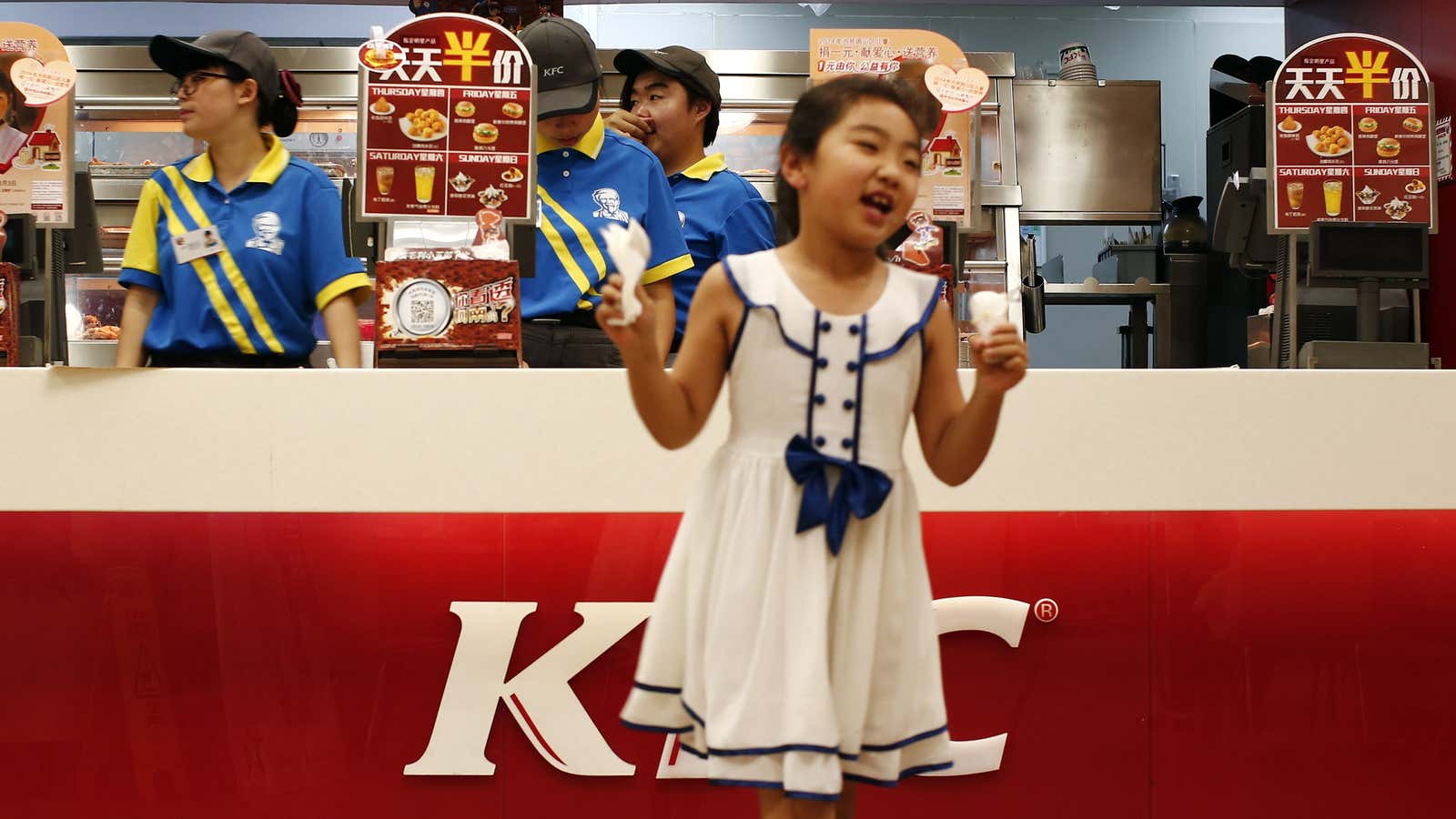Little did Yum Brands know in early July that an obscure international tribunal in the Hague was about to ruin its third quarter. The US fast-food giant—which operates KFC, Taco Bell, and Pizza Hut—reported its results yesterday (Oct. 5), specifically citing tensions over the South China Sea as a reason for its poor performance.
Those tensions were stoked when the Permanent Court of Arbitration in the Netherlands ruled in mid-July that China’s sweeping territorial claims in the South China Sea were largely invalid. Many Chinese, taught since grade school that the sea is China’s, were outraged. Protestors gathered at KFC outlets, which to many are obvious symbols of American interests. (The company plans to spin off its China division at the end of this month.)
In its statement on the quarter, the company noted that:
Sales were off to a good start in the first six weeks of the quarter in the China Division. However, anticipated tougher laps in the second half of the third quarter were compounded by an international court ruling on claims regarding the South China Sea, which triggered a series of regional protests and negative sentiment against a few international companies with well-known Western brands. If not for this event, we believe the China Division would have delivered its fifth consecutive quarter of positive same-store sales growth. The good news is the incident was short-lived and the sales impact continued to dissipate through August and September.
It might indeed have been worse for the company. Many speculated that China wanted to build an artificial island at Scarborough Shoal near the Philippines, which China seized from the Southeast Asian nation in 2012, but not before it hosted the G20 summit in Hangzhou in early September. The US had signaled that building there was unacceptable, partly because it would give Beijing a “strategic triangle” for controlling the sea. That raised the possibility of some sort of conflict, which could have meant more turmoil at KFC outlets in China.
More recently, Philippines president Rodrigo Duterte has expressed anger toward the US and cozied up to China, which some see as a reason behind (paywall) Beijing forestalling action at Scarborough Shoal.
Yum Brands and its upcoming spinoff have other problems in China, including consumers opting for healthier options. But at least with regards to the South China Sea, it’s clear sailing for now.
